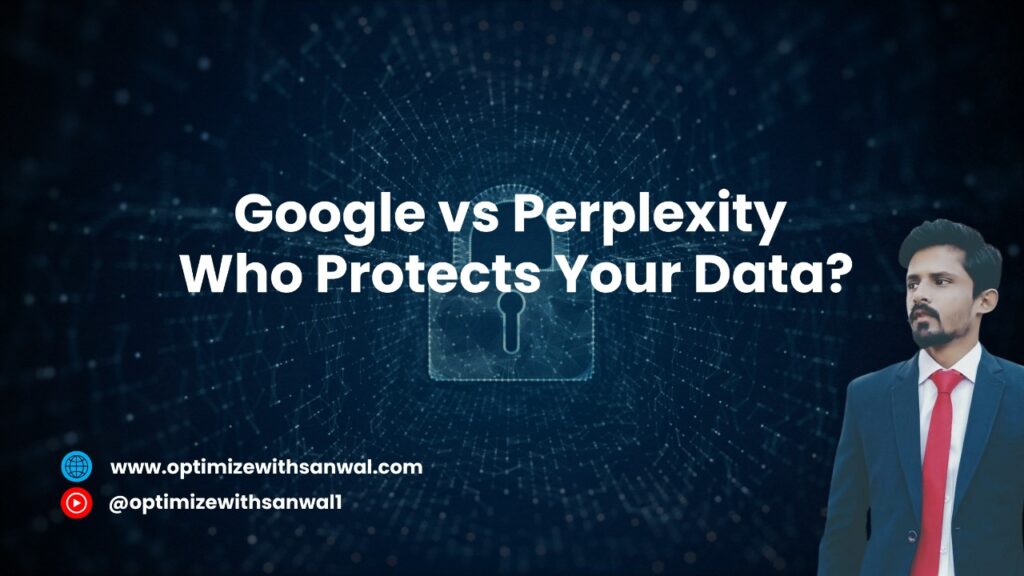Privacy and Data: How Google and Perplexity Handle Your Information
Introduction
In the digital era, AI search engines have transformed the way we access information. Platforms like Google AI Overviews (formerly SGE) and Perplexity AI leverage sophisticated algorithms to deliver fast, accurate answers. But with this convenience comes a pressing concern: privacy and data security. Every query you type could be tracked, analyzed, or stored, impacting your personal information and online footprint.
Understanding how these AI tools manage your data is crucial for researchers, students, tech enthusiasts, and professionals. This article dives deep into how Google and Perplexity handle privacy, comparing data collection, transparency, and user control. By the end, you’ll have a clear understanding of which AI search engine aligns best with your privacy priorities.
Why Privacy Matters in AI Search
Privacy is more than just a buzzword; it’s a foundation for trust and user confidence in AI tools. AI search engines collect and process various types of data, including:
- Search queries
- Click behavior
- Account-linked information
- Device and location metadata
While this data improves AI accuracy and personalization, it can also lead to profiling, targeted ads, or unauthorized exposure of sensitive information. Users must be aware of how their data is used and the tools available to protect it.
Privacy-conscious AI search is especially critical for:
- Students and researchers, who require citation-tracked results without personal data exposure
- Businesses, concerned about intellectual property and competitive information
- Everyday users, looking to maintain anonymity in their searches
Understanding AI Search Data Collection
AI search engines rely on massive datasets to generate accurate and context-aware responses. Here’s how data collection typically works:
- Query Logging – Searches are logged to improve AI predictions.
- Behavior Tracking – Clicks, dwell time, and navigation patterns are analyzed.
- Account Linking – Google ties search activity to user accounts for personalization.
- Device and Location Data – Geolocation and device info help deliver contextual results.
While Google integrates all of these features seamlessly, Perplexity AI emphasizes minimal data retention. By limiting the data collected, Perplexity prioritizes privacy without compromising answer quality. Understanding these differences helps users choose the AI tool that best fits their needs.
How Google Handles Data
Google AI Overviews (SGE) is a powerful tool, delivering comprehensive search answers and integrating with Google’s ecosystem. However, this integration comes with data considerations.
Strengths:
- Utilizes massive datasets for wide-ranging, accurate results
- Seamless integration with Google Docs, Drive, and Maps for context-aware answers
- Personalization enhances the relevance of search results
Weaknesses:
- Queries are often tied to Google accounts, making searches traceable
- Data may be used for targeted advertising
- Privacy settings exist but can be complex to navigate
User Control Options:
- Account activity review: Users can check and delete search history
- Incognito mode: Temporarily prevents data from being saved
- Ad personalization controls: Allows adjustments to reduce tracking
Example: A student searching for academic sources in Google may receive tailored suggestions based on prior searches, but Google may retain and analyze these queries, potentially affecting privacy.
How Perplexity AI Handles Data
Perplexity AI focuses on user anonymity and transparency, making it ideal for privacy-conscious searches.
Strengths:
- Anonymous queries without requiring login
- Inline citations provide transparency on data sources
- Minimal data retention ensures sensitive information is not stored
Weaknesses:
- Smaller dataset may limit answer breadth compared to Google
- Limited integration with other tools and apps
Use Case Example: Researchers using Perplexity for sensitive topics can retrieve citations and accurate answers without the risk of exposing personal search patterns.
Perplexity’s approach demonstrates that privacy and accuracy can coexist, particularly for educational and professional research scenarios.
Head-to-Head Privacy Comparison
| Criteria | Google AI Overviews | Perplexity AI |
| Data Privacy | 6/10 | 9/10 |
| Transparency | 7/10 | 8/10 |
| Security Measures | 8/10 | 9/10 |
Key Takeaways:
- Google excels in integration and speed but requires trade-offs in privacy
- Perplexity prioritizes anonymous usage and citation-tracked answers, making it suitable for research and privacy-focused tasks
User Control and Safety Features
Google AI Overviews:
- Account-level privacy settings allow users to manage search history
- Incognito mode prevents temporary data storage
- Activity review tools help users delete past searches
Perplexity AI:
- Default anonymous searches
- Transparent inline citations
- Minimal long-term data retention
Both platforms provide mechanisms to enhance user control, but Perplexity’s privacy-first approach offers a simpler, more protective solution.
Impact on User Experience and Trust
Privacy directly impacts user trust. Users are more likely to engage with AI tools that protect sensitive information while delivering accurate results.
Google AI Overviews: Offers fast, integrated experiences but may cause privacy concerns, particularly for research-focused users.
Perplexity AI: Enhances trust by prioritizing anonymous, citation-backed answers, ideal for academic research or sensitive business queries.
When to Use Each Tool
Google:
- Broad searches for general information
- Integration with Google’s suite (Docs, Drive, Maps)
- Fast, large-scale results
Perplexity:
- Academic research requiring citations
- Sensitive queries requiring anonymity
- Students and professionals needing privacy-preserving AI search
Practical Tips for Privacy-Conscious Users
- Review privacy settings on Google accounts
- Use incognito mode for sensitive queries
- Combine Google for breadth and Perplexity for citation-tracked, private searches
- Regularly delete search history or anonymize queries
- Consider AI search for professional or academic research where citations are critical
Conclusion and Key Takeaways
- Privacy is critical in the AI search landscape
- Google offers integration and speed, but with trade-offs in data collection
- Perplexity provides anonymity and transparent citations, ideal for research-focused users
- Select your AI search engine based on task, privacy needs, and user trust
Related Posts
For a full comparison of Google and Perplexity, see my full guidance post: The Battle of the AI Search Engines: Google vs. Perplexity.
- Accuracy and Citations: Is Perplexity Better Than Google for Facts?
- User Experience Showdown: AI Overviews vs. Perplexity’s Conversational Interface
About the Author
Sanwal Zia has over 5 years of strategic SEO experience, helping users and businesses optimize search strategies while understanding AI privacy and data practices.
- Website: Optimize With Sanwal
🔗 Connect with Sanwal:
- LinkedIn – Strategic insights and industry updates
- Instagram: Add & Check MY strategies
- Facebook – Community discussions and detailed case studies
- YouTube – Video tutorials and strategy walkthroughs
Take control of your AI search experience. Experiment with both platforms to determine which aligns with your privacy priorities and research needs.
📚 For deeper insights into AI search privacy and strategies, visit my eBooks page.

